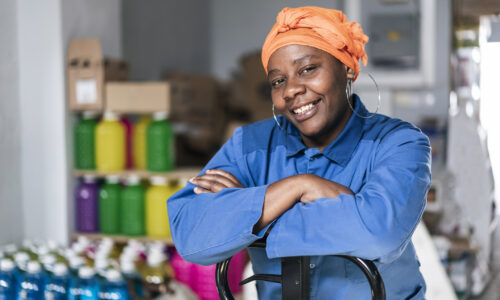
When women succeed, the global economy grows. The crucial role of women in achieving prosperity and the need for gender equality was acknowledged by the world’s 20 leading economies (G20) ) in 2015, with the launch of an engagement group W20. Established in 1999, the G20 meets annually to discuss key financial issues affecting the global economy.
The W20 was formed in Turkey in 2015 as a permanent engagement group of G20 to focus on encouraging gender equality and economic growth. Canada was invited to attend the inaugural summit in 2015. This year, about 200 delegates participated in the May 2016 W20 meeting in Xi’an, China. The theme was “Equal Participation and Innovative Development.” According to a McKinsey report, “$12 trillion could be added to global GDP by 2025 by advancing women’s equality. “
Laurel Douglas, CEO of WeBC was part of the 3-member Canadian delegation at the summit. She represented Women’s Enterprise Organizations of Canada (WEOC), a national association providing resources, programs and services directly to women business owners in Canada. Other members of the Canadian team were Julie Delahanty of Oxfam Canada and Farah Mohamed of G(irls)20. The Canadian delegation to the W20 was selected after a competitive application process.
The discussions explored ways to help women entrepreneurs to overcome success barriers including access to financing, lack of positive role models and fewer opportunities for entrepreneurial growth in global supply chains. Remarked Douglas, “The W20 explored key issues associated with the growth of women-owned businesses in Canada and around the world. The communique recommends proven actions that will enable women entrepreneurs to contribute more to the global economy.”
The W20 recommendations were grouped into the four themes identified by China, the G20 host for 2016. Half of the 22 recommendations related directly to the needs of women entrepreneurs and developing the entrepreneurial ecosystem for women, and included the following:
A Gender Equality Perspective in Global Economic Governance:
Take special measures to encourage inclusive sourcing policies by governments and by corporations to include more women as suppliers in local and global value chains by establishing baseline data, setting targets and reporting on progress.
Women’s Employment and Entrepreneurship and Social Protection
- Support entrepreneurship and launch specific programs to help women overcome business start-up barriers, and grow and sustain their businesses, including through trade. Improve women’s access to credit and other means of production, and the provision of relevant training, information services and technical support;
- Encourage women and girls in the study of science, technology, engineering, and mathematics (STEM), finance, entrepreneurial, green and creative industries, including life-long learning in STEM jobs;
- Enable women’s engagement in cross-border trade and participation in global economic development;
- Provide economic and trade incentives for businesses that are at least 51% owned, managed and controlled by one or more women.
- Provide incentives to investors, and in particular to women investors, who support women-owned or led companies.
Women’s Role in the Digital Economy
- Encourage and support women and girls in their efforts to seize the opportunity brought by the New Industrial Revolution and to actively participate in and benefit from the digital economy;
- Invest in the digital empowerment of women and girls and encourage public and private investment in women-led digital ventures;
- Conduct gender analysis of the impact of the digital economy on the labour market and on labour rights, and implement policies favourable to women for their entrepreneurship and employment in the digital economy era.
Interconnected and Innovative Women’s Network
- Support and strengthen capacity building of women’s networks nationally, regionally and internationally;
- Strengthen transnational and cross-regional exchanges between women’s organizations and women’s professional associations as well as their cooperation with governmental institutions, workers’ and employers’ organizations and relevant intergovernmental organizations.
The W20 gathering affirmed the importance of the monitoring framework included in the Istanbul W20 communique to monitor the G20 members’ programs and initiatives in promoting gender inclusiveness in economic growth.
As Susan Harris-Rimmer, a member of the Australian delegation mentioned, the growing importance of gender equality and growth was acknowledged at the W20, which is the Chinese term ‘She-Power.” Douglas added, “These recommendations will make a change to how countries formulate their policies and programs for women’s economic empowerment.”
The communique issued at the end of the W20 summit will be presented to the G20 leaders in preparation for the Hangzhou Summit later in 2016. A full copy of the final 2016 W20 Communique can be found here, and some photos from the event can be found here.
WEOC looks forward to continuing to support this initiative, along with its colleagues internationally, including WEConnect International, Vital Voices and WIPP. It is clearly important for changes to take place worldwide in order to open the world for Canadian women-owned businesses to access the capital and markets needed to help women reach their business potential and contribute to Canada’s trade goals.




